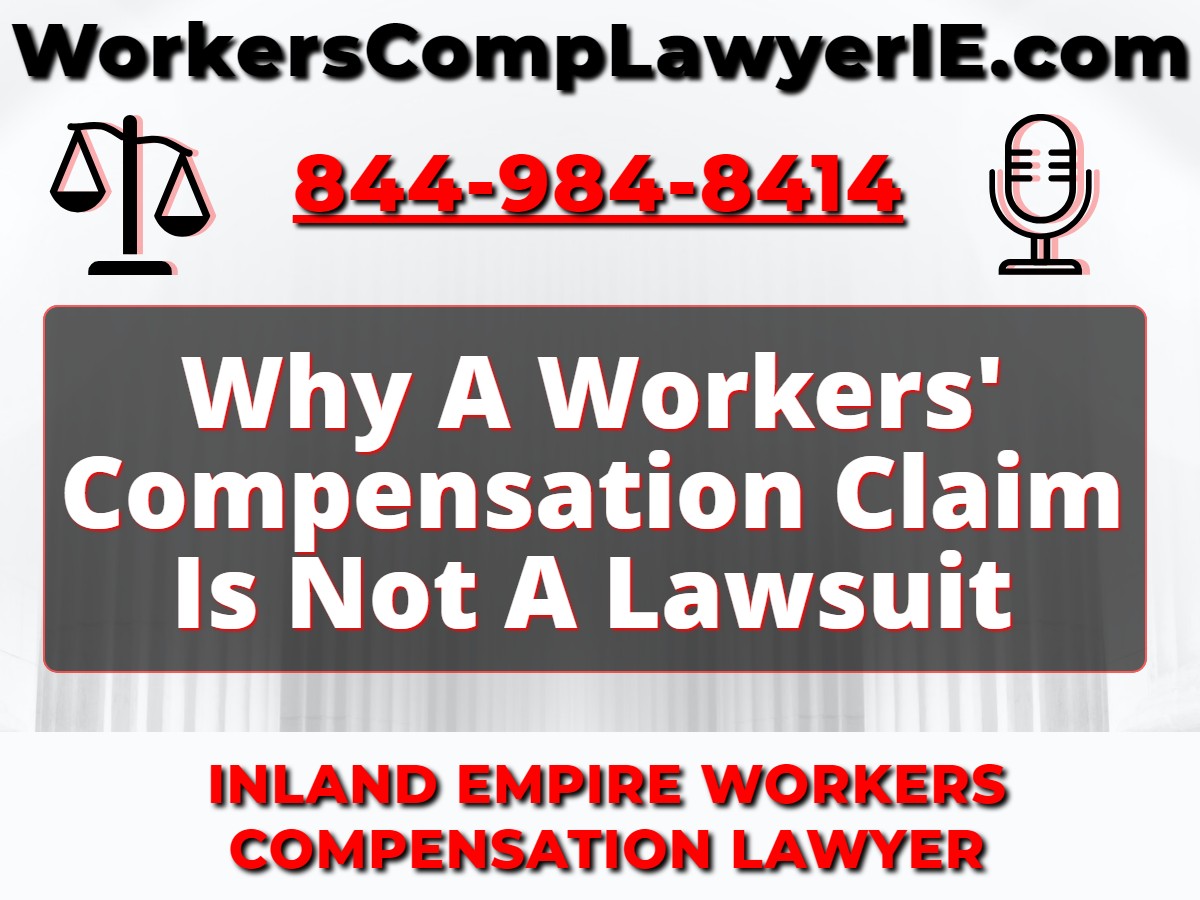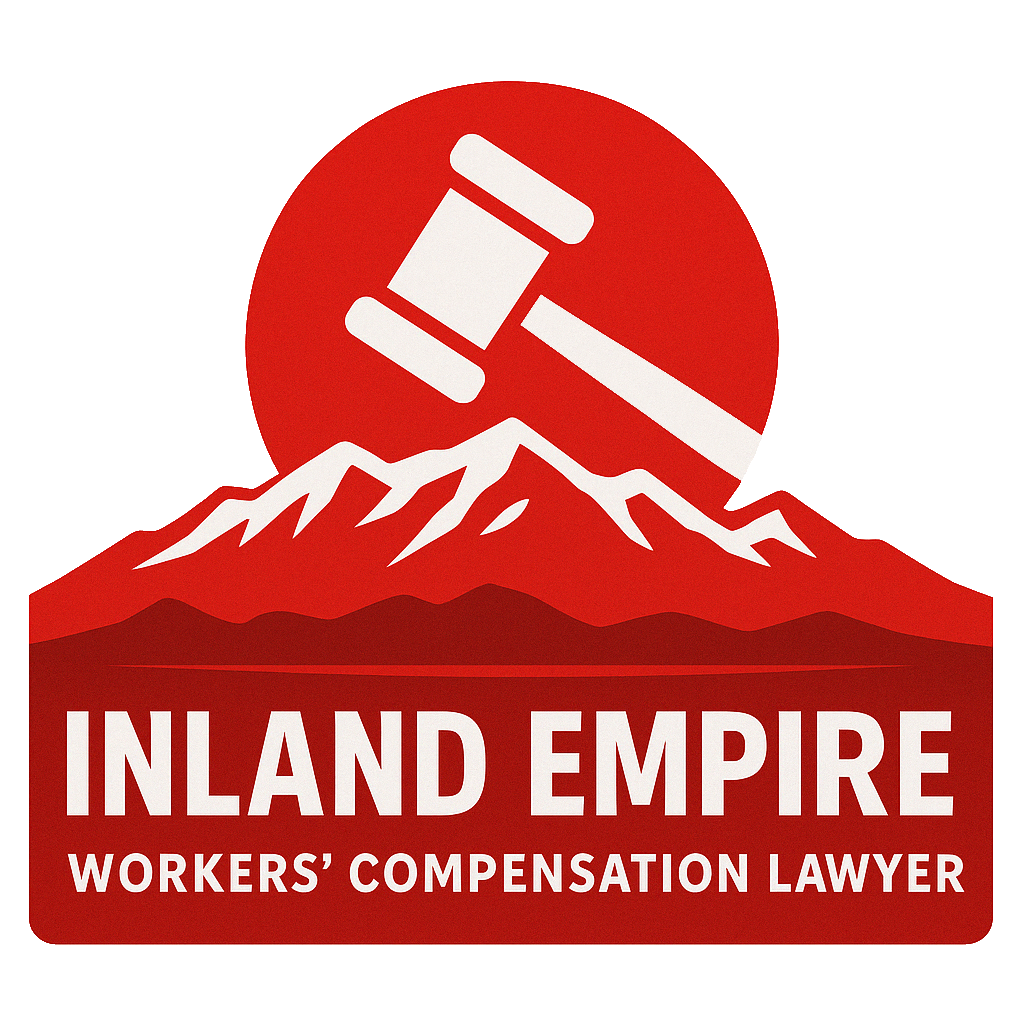Why A Workers’ Compensation Claim Is Not A Lawsuit

Introduction to Why A Workers’ Compensation Claim Is Not A Lawsuit
A common misconception amongst many employees who have been injured at work is the confusion between workers’ compensation and lawsuits. Both these processes share a common purpose: to assist injured employees financially. However, they differ fundamentally in their approach, procedures, and legal requirements. This article will dive into the intricate distinctions, demystifying why a workers’ compensation claim is not a lawsuit.
What is a Workers’ Compensation Claim?
Workers’ compensation is a state-mandated insurance program that provides benefits to employees who sustain work-related injuries or illnesses. These benefits may cover medical expenses, a portion of lost wages, and rehabilitation costs, among others.
Unlike in personal injury cases, the system doesn’t require employees to prove fault. As long as the injury or illness is work-related, the worker may be eligible for benefits, regardless of whether the employer or employee was negligent. Moreover, workers’ compensation is typically an exclusive remedy, meaning employees generally cannot sue their employers for workplace injuries in most situations. It’s a no-fault system that seeks to balance the needs of employees for prompt, sure compensation and employers for liability protection.
What is a Lawsuit?
A lawsuit, on the other hand, is a civil action brought before a court in which the plaintiff seeks a legal remedy against the defendant. In the context of workplace injuries, an employee may initiate a lawsuit alleging negligence or intentional harm by the employer.
Contrary to workers’ compensation, the lawsuit requires the plaintiff to prove the defendant’s fault, causation, and extent of damages. The potential remedies may include economic damages such as lost earnings, medical expenses, and non-economic damages like pain and suffering. In rare instances of egregious misconduct, punitive damages may also be awarded.
Differences Between a Workers’ Compensation Claim and a Lawsuit
Initiation Process
While both processes begin when an employee gets injured, the procedures differ significantly. A workers’ compensation claim is initiated when an employee notifies their employer about their injury or illness. The employer then reports the incident to their insurance company, who reviews the claim and determines the benefits.
In contrast, a lawsuit is initiated when the injured employee (plaintiff) files a legal complaint against the employer (defendant) in a civil court. This begins a process of pleadings, discovery, negotiation, and possibly a trial, all of which can be lengthy and complex.
Proving Fault
One of the primary differences between a workers’ compensation claim and a lawsuit is the element of fault. A workers’ compensation claim operates under a no-fault system, meaning the employee doesn’t need to prove that the employer was negligent. The main concern is whether the injury or illness is work-related.
On the contrary, a lawsuit is fault-based. The employee must prove that the employer negligibly or intentionally caused the injury. This task often requires substantial evidence and expert testimony, making the lawsuit process more demanding and contentious.
Compensation
In a workers’ compensation claim, the benefits are limited to medical expenses, a portion of lost wages, and potentially, vocational rehabilitation. Non-economic damages like pain and suffering are not recoverable.
Conversely, a successful lawsuit may result in a broader range of damages. Apart from medical expenses and lost earnings, it may include compensation for pain and suffering, loss of consortium, and, in some cases, punitive damages. However, the potential for larger recovery comes with the risk that the plaintiff may walk away with nothing if they fail to prove their case.
Legal Representation
In both cases, legal representation can be beneficial. However, due to the adversarial nature and complexities involved in lawsuits, having an attorney is almost a necessity. With workers’ compensation claims, legal assistance can help navigate the process, but it’s not always mandatory.
Common Misconceptions About Workers’ Compensation Claims
Many people believe that filing a workers’ compensation claim is equivalent to suing their employer. This misunderstanding can deter employees from filing claims due to fear of retaliation or job loss. But these are two entirely different processes with their own set of rules and outcomes. Filing a workers’ compensation claim is an exercise of a right provided by the employer and the law, not a hostile action against the employer.
The Importance of Understanding the Differences
Being aware of these differences empowers injured employees to take appropriate action without apprehension. By understanding that a workers’ compensation claim is not a lawsuit, they can assert their rights and seek the benefits they are entitled to without fear.
Conclusion: Workers’ Compensation Claim Is Not A Lawsuit
In summary, although workers’ compensation claims and lawsuits may serve similar purposes, they are fundamentally different. A workers’ compensation claim is a relatively straightforward administrative process designed to quickly provide benefits to injured workers without the need to prove fault. A lawsuit is a more complex, time-consuming legal procedure that requires proving fault and can potentially provide a wider range of damages.
Seeking Help With Workers’ Compensation Claims in California
If you’re an injured worker in California, you don’t have to navigate the complexities of workers’ compensation alone. Call WCLIE’s Injury Helpline at (844) 984-8414 to seek a free consultation. With our extensive experience in California workers’ compensation laws, our team is equipped to guide you through the claims process, ensuring you understand your rights and options. Remember, you’re not alone in this journey – we’re here to help you every step of the way.
Please note: The information in this article is for general informational purposes only and does not constitute legal advice. Each legal issue is unique; always seek legal counsel in your jurisdiction to discuss your situation. If you want more information on California workers’ compensation, visit more of our articles here on workerscomplawyerie.com.
